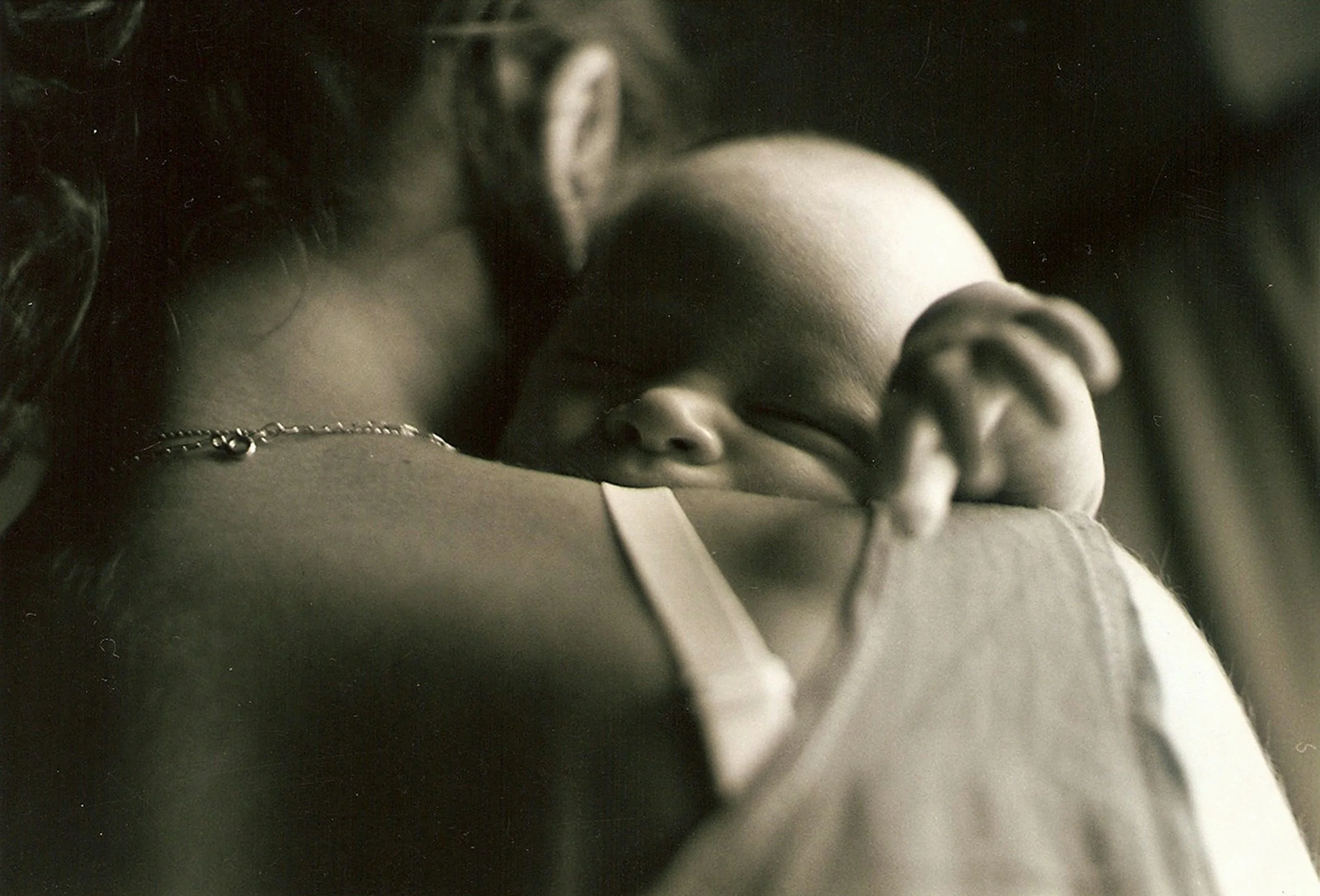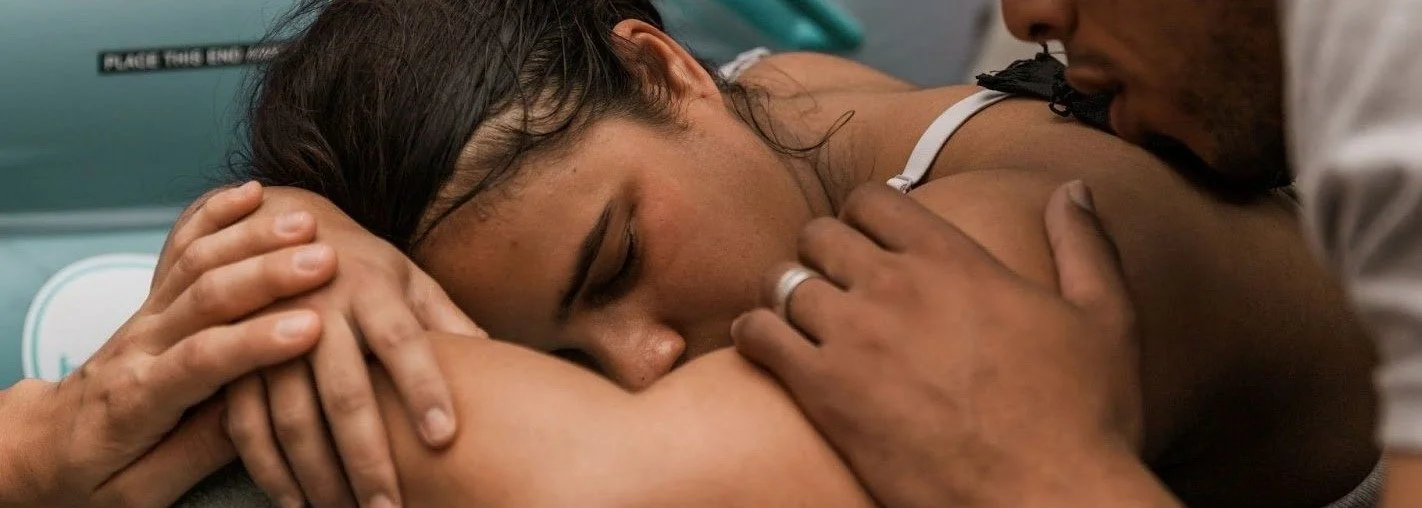Birth is a Heroic Journey
In 2010, Pam England wrote a series of pieces about ways in which we can change birth in our culture. The Birthing From Within leadership and blog team has chosen some of these pieces as inspiration and jumping-off points to create a new 12-part series about changing birth in our culture that reflects current understandings within the birth world as well as our current approaches and offerings as an organization. We will be sharing one piece for each month of 2019, both on the blog and in our newsletter. We hope you enjoy this wonderful material, both the archival treasure and the new, innovative insights!
Many parents find that the hardest part of the birth experience is the sense of losing their way, or losing themselves. There are so many points in the childbearing year when this feeling might arise - a parent may find that their doctor or midwife’s practices are not as aligned with their preferences as they had thought; a parent may find that the intensity of the labor experience is beyond what they had been prepared to cope with; a parent may find that their baby requires a different sort of care than they had intended to give. In such situations, parents are often so far from what they had hoped, or planned, or expected, and thinking or doing things that are so far outside of their own established self-images, that they may feel separated from themselves. Pam England often refers to this phenomenon as a “crack” — that is, as the parent’s experiences/feelings/actions depart more and more from their intentions and expectations, it opens a crack in their consciousness, a discontinuity in their understanding of themselves and the world around them. There is real danger of perinatal people becoming “stuck” in such cracks, stuck contemplating the trauma of subverted expectations and of being let down by themselves or others. Caught in this place of trauma, they can become unable to move forward and fully inhabit their new lives as parents.
How can birth professionals prepare parents for this aspect of the childbearing year? How can we normalize and contextualize this often-dramatic sense of loss of identity and direction?
One answer, perhaps surprisingly, comes from the world of comparative mythology. Beginning around 150 years ago, scholars began to observe that many hero myths from different cultures seem to share a common pattern of events — a “monomyth” underlying the otherwise distinct stories. Joseph Cambell popularized the monomyth idea in the mid-20th century, calling the pattern “the Hero’s Journey.” While more recent years have seen meaningful and important criticism of Campbell’s work and of the monomyth concept, the Heroic Journey remains a useful tool for thinking about stories and the human experience. Most importantly to us in Birthing From Within, the Heroic Journey provides us with a way to understand and navigate the childbearing year — in other words, it gives us a map.
The outline of the Heroic Journey is as follows:
Call to Adventure/Action
Preparation/Departure
Initiation/Ordeal
Death/Rebirth
Transformation/Healing/Atonement
Return
You can probably easily identify this pattern not only in many myths and legends, but also in pop culture: consider Luke Skywalker, or Moana, or Neo from The Matrix. Any experienced birth professional considering this pattern will immediately recognize the contours of the childbearing experience: the decision to become a parent and/or recognition that one is going to become a parent (which might happen at any time before or after conception), the preparation for the birth and arrival of the baby, the intense physical and psychological challenge of the birth and postpartum period, the permanent disappearance of the nonparent self and genesis of the parent self, the healing from the birth and postpartum experience, and the reintegration of the new self back into the “real world.”Birthing From Within mentors and doulas often introduce parents to the Heroic Journey prenatally by means of a Great Story - most frequently The Descent of Inanna.
Thinking and talking about stories (rather than just facts) helps parents internalize the understanding that birth is not just the moment that the infant emerges from the body, but instead a multistage experience that will require strength and stamina, and that will finally end with a return to a new self.
Most parents will have encountered at least parts of the monomyth pattern again and again from a young age, so they will not feel as though they are having to learn (yet more) new information. Instead, it will feel like revisiting previously-held knowledge from a new perspective. In addition, presenting these ideas via storytelling rather than “lecture” format puts parents into a different mental mode - a trancelike state in which learning comes easily, and that accesses the very hormones that drive labor. Having spent time in the story-listening trance, dreaming how it might apply to the birth experience, parents are prepared in a new, more effective way for the contours of the childbearing year. Now, when they experience that sense of lostness, of having moved out of charted territory, off the maps of known or expected experience -- in other words, when they are in the cracks -- they can still locate themselves on the map of the Heroic Journey. “This is the initiation, the part where the things I had most relied upon are no longer reliable.” Or, “This is the death and rebirth, when I no longer feel like the person I was, and am yet to become the person I will be.” Having this knowledge may not lead parents to enjoy these moment of great intensity — and sometimes of unhappiness — but it allows the moments to be part of the experience, rather than painting them as a radical departure. In other words, the Heroic Journey map normalizes what might otherwise be the most frightening parts of the birth experience, and shows them to be essential parts of a well-worn journey that ends in a new, newly-functional self.
Acquainting more parents - and birth professionals - with this powerful tool for understanding the physical and psychological journey of birth could create currents of meaningful change within our birth culture, making room for the untamed spaces in the birth experience, and showing how those moments in the shadows will, if we let them, lead us to finding new light.
If you are a parent interested in exploring the map of Heroic Journey either prenatally or postpartum, we invite you to reach out to a BfW mentor near you (or one far away, for a distance session!). If you are a birth professional interested in exploring how the an understanding of the Heroic Journey can deepen and enhance your work with parents, check out our training programs. We look forward to exploring with you!







